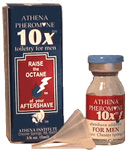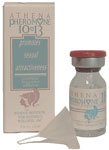Sex Without Estrogen: Remedies for the Midlife Mind And Body

Click here to watch the recent video interview of Dr. Cutler
discussing her new book; Hormones and Your Health
Click here to read more on the topics from chapter excerpts of Dr. Cutler's new book; Hormones and Your Health
Copyright 2004 ©The New York Times newspaper.
For More on this topic read Chapter 12 of Dr. Cutler's new book; click here for excerpt
By award-winning Science Writer Robin Marantz Henig
“SEX life for women doesn't end with the menopause," wrote Dr. Alex Comfort in "The Joy of Sex," his landmark self-help book from the 1970's, "unless they have been convinced that it should."
Unfortunately, quite a few women fall into that category. Although 10 percent of a group of women in midlife who were tracked by researchers at Pennsylvania State University said they were having better sex than when they were young, about 60 percent reported a loss of sexual desire, responsiveness or frequency.
Are things bound to get worse? After all, the number of women reaching midlife is rising, just as hormone replacement therapy — formerly the first-line remedy for the sexual difficulties associated with menopause (click for more info) — has become less popular.
But the future is not necessarily grim for aging women, specialists say. The problems these women encounter are varied, and have a range of solutions having nothing to do with hormone replacement.
Dr. Comfort, who was also a noted geriatrician, had a pithy summary of the things that can derail a woman's sex life: "The things that stop you having sex with age," he wrote, "are exactly the same as those that stop you riding a bicycle (bad health, thinking it looks silly, no bicycle)."
The first, "bad health," need not even have a direct effect on hormones or genitals in order to put a damper on a woman's sex drive. "If a woman is dealing with breast cancer, her ability to reach orgasm is not the most important thing in her life at that moment," said Dr. Jill M. Wood, an instructor in women's studies at Penn State.
"Any sort of health issue," Dr. Wood said, "arthritis, diabetes, even a partner having an illness, interferes with a woman's sexual response."
And how about the biggest physical change of all, when the ovaries stop producing the female hormones estrogen and progesterone?
For women who experience some of the most distressing symptoms of menopause, it might be hard to stay sexual through the worst of it. Hot flashes and night sweats can make a woman unwilling to be touched, and vaginal dryness can turn sex into an ordeal.
Now that fewer women are taking hormone replacement therapy because of fears about long-term side effects, the worry is that legions of estrogen-deficient baby boomers will be forced to endure those symptoms with no relief in sight, their lives a vast sexual wasteland.
But it turns out that pulling back on hormone therapy might be the best thing that ever happened to middle-aged sex. Hormone therapy was considered good for sex. But what it mostly does is relieve some of the symptoms associated with menopause, like vaginal dryness and night sweats, that lower a woman's libido by making intercourse unpleasant.
Paradoxically, said Dr. Steven J. Sondheimer, a professor of obstetrics and gynecology at the University of Pennsylvania, hormone replacement also ratchets up the mechanisms that keep the body's hormones on an even keel. This has the unintended effect of interfering with the action of sex hormones, including testosterone, which regulates sex drive in women and men.
"I have some patients whom I've switched from oral estrogen to an estrogen patch because of the effect H.R.T. seems to have on libido," Dr. Sondheimer said. "And sometimes this seems to help, though whether it's a placebo effect I'm never sure."
Oddly, no studies have been done to see what impact hormone therapy has on a woman's sex drive. Even the Women's Health Initiative, the study undertaken to assess the risks and benefits of hormone replacement, did not address this issue, a lapse that Dr. Barbara Bartlik, assistant professor of psychiatry at the Weill Medical College of Cornell University, called annoying: "Why would they go through such a massive study and not bother to ask about their sexuality?"
Dr. Comfort's second explanation for a loss of interest in sex — thinking it looks silly — can be even more pernicious than ill health. Almost every middle-aged woman, even those who are objectively gorgeous, is self-conscious about her lumps and wattles and other dreary imperfections. No matter how sexy she feels inside, she is aging on the outside — and sometimes a glance in the mirror with unflattering overhead light is all it takes to make her feel not so sexy after all.
"The worrying about staying young and looking good are enormously oppressive to women," said Dr. Leonore Tiefer, a clinical associate professor of psychiatry at New York University School of Medicine. "I know from my patients, and from my friends, that midlife women are very concerned that what sexuality is all about in this country is a youthful concept."
Then there is the problem of the "bicycle" — a willing, able and sensitive partner. The nation's high divorce rate means that many women in midlife are alone, especially since when divorced men remarry, they tend to find younger wives.
And a husband or partner might have age-related problems: concerns about his health, self-consciousness about his looks, the inability to get or maintain an erection or to reach orgasm.
While Viagra has revolutionized the sexual performance of men in midlife, it cannot fix everything. It especially cannot help repair a relationship that might have foundered after decades of resentment, inattention or routine.
"The biggest factor in midlife women's sexual interest is their relationship with their partners," said Dr. Wood of Penn State, who recently interviewed a group of women around the age of menopause about their sex lives. "When there are unequal household chores and he doesn't pick up his socks, she might not want to have sex with him because she's annoyed. When he expects her to have sex and doesn't care what she wants, that might interfere with her desire."
* A third approach involves the natural chemicals known as pheromones. Animals emit pheromones to elicit certain behaviors in other animals of the same species, most often as a sex attractant. Humans make pheromones as efficiently as do animals — and they respond to them as effectively, but usually below the level of consciousness. That is why using pheromones can seem, in a way, like applying a magic love potion.
"In the movies, in literature, we constantly hear the theme of women complaining about `becoming invisible' as they get older," said Dr. Winnifred Cutler, who helped discover human pheromones (click for more info) while she was at the University of Pennsylvania and now markets them through her research organization, the Athena Institute (Athenainstitute.com).
Pheromones do not have an impact on a woman's desire, but they might affect her desirability, she said. In a certain proportion of women who use it, men just seem to find them more attractive.
Dr. Sondheimer described himself as "skeptical, but humble," about pheromone changes. He studied pheromones years ago and found they led to a very modest increase in the secretion of pituitary hormones. "Libido is so multifactorial," he said, "that I find it hard to believe that very small changes are likely to have much of an impact."
But he said he was willing to reserve judgment because "there's a lot we don't understand about brain function and sexuality."
In any case, Dr. Cutler is not making claims for what pheromones will do for a woman's libido — only for her sexual attractiveness.
"Pheromones might help a woman get more affection, more hugging and kissing and holding," Dr. Cutler said. "And for some women at this stage of life, romance and affection — feeling attractive and loved — are what they most need."
END OF EXCERPT
Dr. Cutler's pheromone science has been "bottled" into vials of unscented fragrance additives that increase wearers' sexual attractiveness. AVAILABLE FOR PURCHASE HERE
COMMENT FROM ATHENA INSTITUTE: Both Athena Pheromone 10:13tm for women and Athena Pheromone 10Xtm for men are cosmetics that can increase your attractiveness to the opposite sex. Neither product is an “aphrodisiac.”

